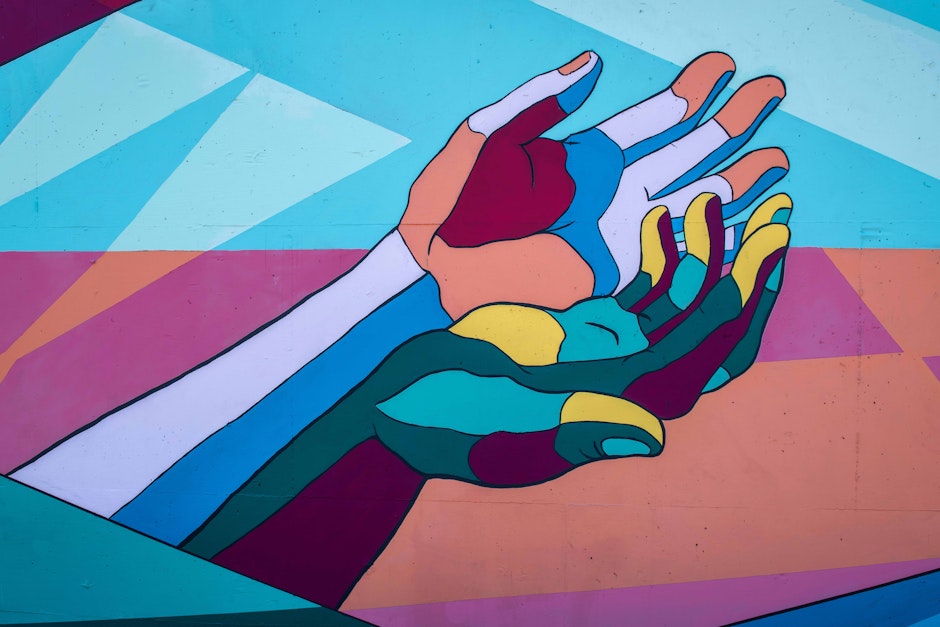Why World Mental Health day is every day, not just one day a year
This World Mental Health Day feels different

Talking about mental health in the workplace can sometimes be a struggle. As an employee, it is something that can affect us profoundly and be the ball and chain dragging behind us as we try and appear put together and professional. Because Human Understanding is at the heart of everything we do, my company gets why mental health shouldn’t just be one day a year – it’s a much bigger deal than that.
Often for events such as Mental Health Day, if we were in the office right now, some offices might show posters on walls with cartoon images of someone with their head in their hands, and an email going around saying contact HR which might not be enough for everyone.
The reality is that even though mental health is spoken about much more widely than in previous years, in the workplace it can still be something that a lot of us would much prefer to keep private. This has perhaps become even more of a complicated issue during COVID-19, where many of us are confined to working from our bedrooms or dining room tables. Suddenly we split our lives between business and personal, and are now faced with having both worlds come together.
Understanding everyday problems
There are many issues to identify when we start to address mental health. The first one is simply talking about it.
If a work colleague came into the office missing half their right arm, it wouldn’t be our first thought to say “I think we need to talk about your physical health”. Yet the same standard can’t be applied to its counterpart. When we start to see someone exhibiting some key “mental health behaviours”, whatever they are meant to be, it suddenly seems to be much more appropriate to say “I think we need to talk about your mental health”.
When we think about physical health, we often exhibit empathy easily, with little understanding of what the person is experiencing. When someone talks about mental health, it suddenly becomes a three-lane road of either depression, anxiety or stress with quips of “Oh gosh, yes, I’ve just got so many emails, I know exactly how you feel”.
There is an expectation of the old, brave face. Again, if we go back to our friend with the missing right arm, we wouldn’t thrust a keyboard in front of them and expect them to just figure it out with their good, left arm. Yet if someone is experiencing a panic attack during a meeting, we might have a different reaction if they said “I’m sorry, I’m going to have to leave the call because I’m having a panic attack”.
All of these behaviours, ingrained into some of us, de-value the reality of mental health in the workplace.
Recognising new challenges in the workplace
COVID-19 has turned all our lives into something that they were never before, and our workplace environment is no exception to this. Based on research from Walnut UNLIMITED, people’s mental health positivity has depleted significantly since July 2019, and has remained low through the duration of lockdown in the UK:
From working at home and the introduction of Teams and Skype for Business as our portal to everything and all things. There is suddenly the feeling that you have to always be available.
Our relationships are now all online. From being able to simply raise your head and ask a question, we now have to type it out, watch whilst someone types back, where we can quickly create panic in our minds needlessly.
We are also living in a world where we have to watch many around us lose their jobs. Suddenly, we start to question ourselves, whether what we are doing is positive enough, are we being scrutinised, is that Teams message I sent being looked at by my big boss and I won’t know…
Perhaps without realising it, we have all entered a world that on the surface can be a convenience, and for some, it is perhaps, but for many of us, it solidifies those issues with our mental health that we already had. And again, we are faced with the wall of the brave face.
What can I do to help?
Our time for change needs to start in acknowledgement, from everyone. Under COVID, the lines have blurred, and therefore our approach to work needs to change. It is about resetting the boundaries and allowing yourself time for your mind to breathe.
Mentalhealth.org.uk has fantastic articles about how employers can look to support their employee’s mental health during COVID-19 and working from home.
Essentially, I think it’s keeping a few things in mind at all times to try and help yourself:
· Just because your boss read your message but didn’t reply, don’t worry. They’ve got 3 kids under the age of 6 with them.
· Take control of your time – turn being “away” into a positive tool.
· Leave the house at some point every day – you’re not always “available”
· Regular exercise helps keep your body and mind in shape
· You deserve a break – take pride in making that cuppa.
This World Mental Health Day, I implore to not only take a moment for yourself but consider your colleagues around you. We are all in the same boat.
This article was written by Joe Crocker, Account Manager at TMW UNLIMITED

